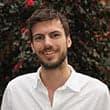This course is part of Tourism in Transition: Exploring a Sustainable Future.
This comprehensive course explores the future of sustainable tourism development through an interdisciplinary lens. Students engage with various tourism disciplines and social science perspectives to analyze current industry challenges and opportunities. The course examines tourism through sociological, psychological, and geographical frameworks, addressing critical issues like climate change impact and post-COVID recovery. Participants work in teams to develop innovative solutions and business cases for sustainable tourism practices. The program combines theoretical knowledge with practical application, encouraging students to contribute to ongoing discussions about tourism's future. Special attention is given to emerging trends like Van Life and voluntourism, while also addressing the industry's response to global challenges.
4.5
9,474 already enrolled
Instructors:
English
English
What you'll learn
Apply insights from various tourism disciplines to current industry developments
Analyze and share inspiring sustainable tourism initiatives worldwide
Develop skills in creating future narratives for tourism business cases
Contribute to ongoing dialogues about sustainable tourism development
Understand tourism industry adaptations to post-COVID challenges
Skills you'll gain
This course includes:
PreRecorded video
Graded assignments, exams
Access on Mobile, Tablet, Desktop
Limited Access access
Shareable certificate
Closed caption
Get a Completion Certificate
Share your certificate with prospective employers and your professional network on LinkedIn.
Created by
Provided by

Top companies offer this course to their employees
Top companies provide this course to enhance their employees' skills, ensuring they excel in handling complex projects and drive organizational success.





There are 5 modules in this course
This course provides a comprehensive exploration of sustainable tourism development through multiple disciplinary lenses. Students learn to apply insights from sociology, psychology, and geography to current tourism challenges. The curriculum covers innovative tourism developments, future narrative creation, and practical implementation strategies. Through team-based learning and expert feedback, participants develop skills in creating sustainable business cases and project proposals. The course particularly emphasizes post-COVID tourism recovery strategies and emerging sustainable practices.
Tourism Studies and Development
Module 1
Psychology of Tourism
Module 2
Sociology of Tourism
Module 3
Geography of Tourism
Module 4
Wrapping Up and Looking Forward
Module 5
Fee Structure
Individual course purchase is not available - to enroll in this course with a certificate, you need to purchase the complete Professional Certificate Course. For enrollment and detailed fee structure, visit the following: Tourism in Transition: Exploring a Sustainable Future
Payment options
Financial Aid
Instructors

4 Courses
Tourism and Conservation Conflict Studies Expert
Arjaan Pellis serves as Programme Director of BSc/MSc Landscape Architecture and Spatial Planning and Lecturer in Cultural Geography at Wageningen University & Research, where he specializes in tourism conflicts and conservation practices. After completing his MA at the Erasmus School of Management and both his MSc and PhD at Wageningen University, he has developed significant expertise in analyzing social conflicts within tourism landscapes. His research portfolio spans multiple continents, examining conservation tourism practices across Africa and Europe, with particular focus on human-nature conflicts in places like Kenya, Namibia, Spain, and Portugal. His scholarly work investigates the complex dynamics of tourism conflicts, as evidenced in his publications on rewilding initiatives in Western Iberia, wolf conflicts in Redes Natural Park, and conservation challenges in Kenya's tourism landscapes. Through his teaching and research, he explores how conflicts shape tourism development and conservation practices, contributing to both academic understanding and practical applications in tourism governance. His recent work includes examining surf tourism dynamics in the Mentawai Islands and the persistent nature of conservation conflicts in various global contexts, demonstrating his commitment to understanding the complex relationships between tourism, conservation, and social conflict.

4 Courses
Leading Expert in Bioprocess Engineering and Sustainable Biorefinery
Dr. Corjan van den Berg serves as Assistant Professor at Wageningen University's Bioprocess Engineering group, where he specializes in biorefinery processes and sustainable production of bio-based products. After completing his BSc in Food Technology and MSc in Biotechnology, he earned his PhD in Process Technology from Delft University of Technology in 2010, conducting research at TNO. His career trajectory includes significant work in downstream processing of biofuels before focusing on single cell proteins and algae biorefinery. At TNO, he led the development of the world's first mobile algae biorefinery before joining Wageningen University in 2016 as an assistant professor. In 2019, he co-founded Revyve, a company developing natural functional ingredients from micro-organisms. His research focuses on converting next-generation feedstocks into multiple products through biorefinery approaches, with particular expertise in extraction and separation technologies. His work has garnered over 1,200 citations, demonstrating his significant impact on the field. Through his academic work and entrepreneurial ventures, he continues to advance sustainable bioprocessing while developing practical applications for bio-based products.
Testimonials
Testimonials and success stories are a testament to the quality of this program and its impact on your career and learning journey. Be the first to help others make an informed decision by sharing your review of the course.
Frequently asked questions
Below are some of the most commonly asked questions about this course. We aim to provide clear and concise answers to help you better understand the course content, structure, and any other relevant information. If you have any additional questions or if your question is not listed here, please don't hesitate to reach out to our support team for further assistance.



